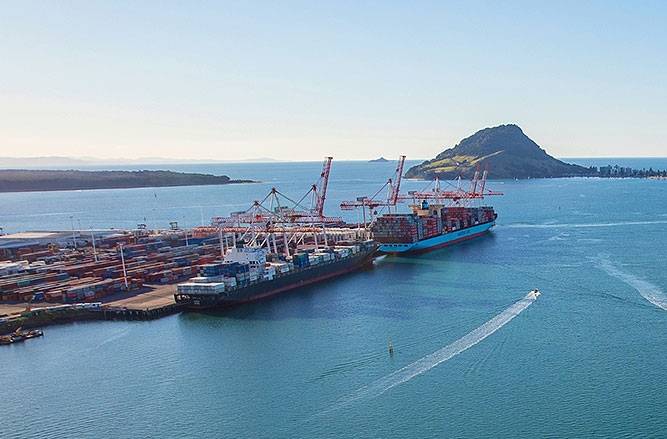Transport Minister Michael Wood today announced that New Zealand is one step closer to a more sustainable, competitive and resilient coastal shipping sector after selecting preferred suppliers for new and expanded coastal shipping services.
“Coastal shipping is a small but important part of New Zealand’s freight system, so the Government is investing in making coastal shipping a more viable alternative to strengthen and diversify our domestic supply chain, helping ensure New Zealand’s recovery from Covid-19. “, says Wood.
“As a lower-emission mode of transport, investment in coaster shipping will also help us meet our decarbonisation targets.
The government has allocated $30 million in funding for coaster shipping through the National Land Transport Programme (NLTP) to improve domestic shipping services, reduce emissions, improve efficiency and upgrade maritime infrastructure.
Waka Kotahi worked with the wider freight industry (New Zealand Shipping Federation, Port Company CEO Group, National Road Carriers, KiwiRail and Te Manatu Waka – Ministry of Transport) to select four candidates to co-invest in new and expanded cabotage services through the NLTP.
The four preferred suppliers are Coastal Bulk Shipping Ltd, Move International Ltd, Swire Shipping NZ Ltd and Westland Mineral Sands Co (2022) Ltd.
“Supported by the freight industry, these additional services will help address pressing issues for the short sea shipping and wider freight sector, address some of the current challenges facing international and domestic supply chains, and provide a platform for future growth across all modes of transport with increased capacity and capability for both new and existing bulk materials and containerised cargo,” says Wood.
“Each of these four selected suppliers will commission at least one additional coaster vessel and together this will increase the sustainability of the entire cargo supply chain.
“The four preferred suppliers will invest more than $60 million within their proposals, bringing the total investment in the sector to more than $90 million.
“It is estimated that when fully operational, the new services will reduce around 35 million kilometres of truck trips from New Zealand’s road network each year, reducing wear and tear and improving safety for road users, while at the same time creating new employment opportunities. for seafarers and supporting regional development. It will also support our commitment in our recently published Emission Reduction Plan to reduce emissions from freight transport by 35% by 2035.
“With this funding we are taking an important step towards more efficient use of the blue highway, improving our freight transport system and preparing for the future of our national supply chain.
“In the meantime, we continue to work to mitigate supply chain issues caused by Covid-19, including increasing capacity through KiwiRail, expanding the air support package to enable businesses to reach international markets, and working with the sector to address problems as they arise. they arise,” says Wood.
The Council of Trade Unions welcomes government support for cabotage shipping.
The Council of Trade Unions says the government’s $30 million investment in improving cabotage shipping is great news for jobs, the economy and the environment.
“Resilient coastal shipping has huge benefits for New Zealand and we welcome the government’s commitment to unlocking the potential of this sector,” says Trades Union Council president Richard Wagstaff.
The investment, in partnership with four shipping companies announced by Transport Minister Michael Wood, will bring at least four additional vessels operated by New Zealand into service. The funding is being provided by Waka Kotahi through the National Land Transport Programme.
“This will make the industry more viable, allow investment in skills development and thus help create stable and long-term employment for seafarers in this vital sector, which is great news as the economy recovers from the disruption caused by the pandemic,” the statement said. Wagstaff.
“This is another example of the government’s willingness to tackle some of our long-term challenges. Coastal shipping can play an important role in building a lower carbon economy by helping to shift freight transport from road to sea, which is a lower-emission mode of transport.
“As well as the environmental benefits, increased coastal shipping will contribute to regional development and increase the resilience of our national supply chains, which have been affected by Covid.
“Improved coastal shipping means more freight opportunities, more jobs and a stronger economy, and we thank the government for taking this step,” says Wagstaff.

